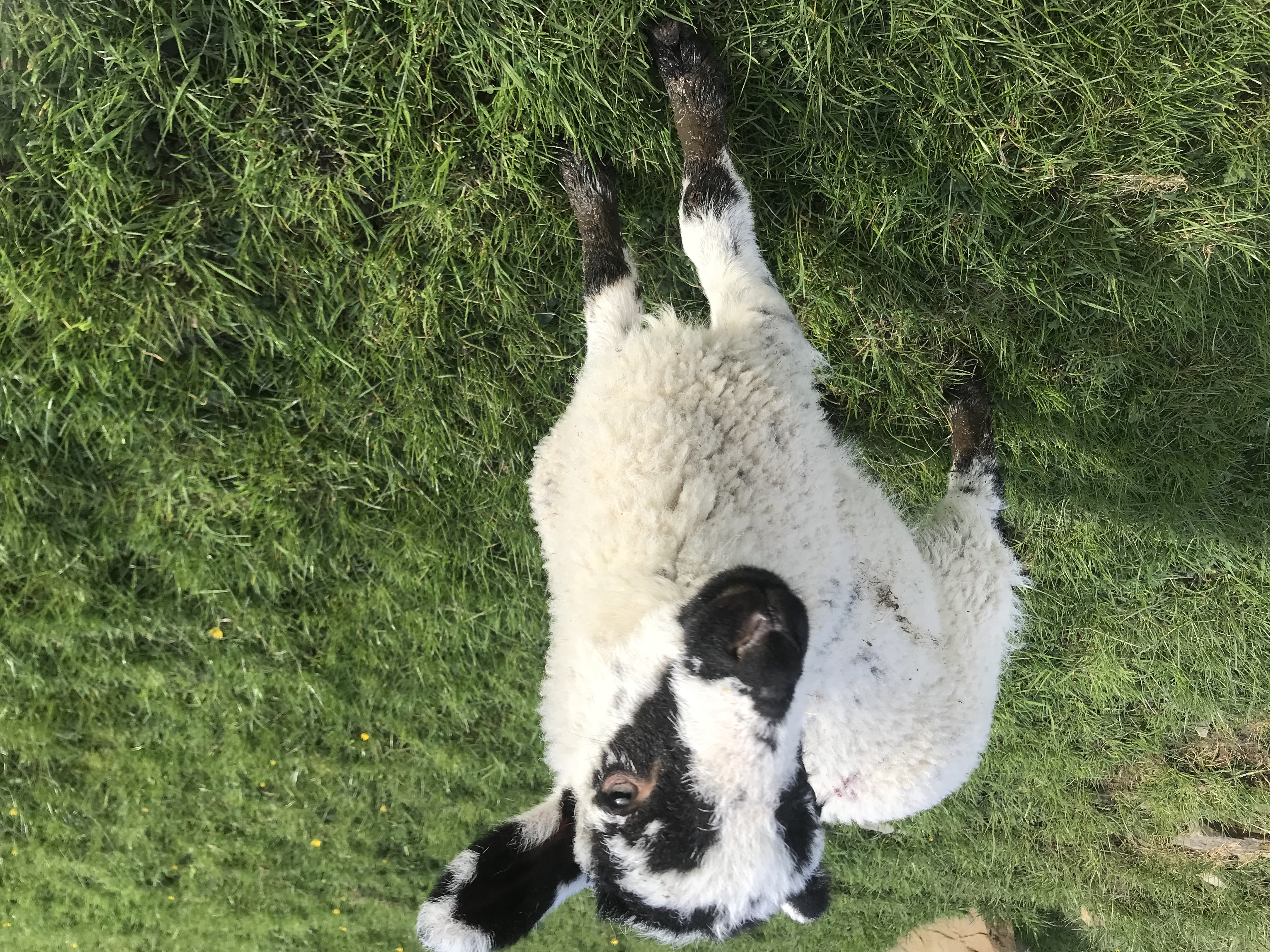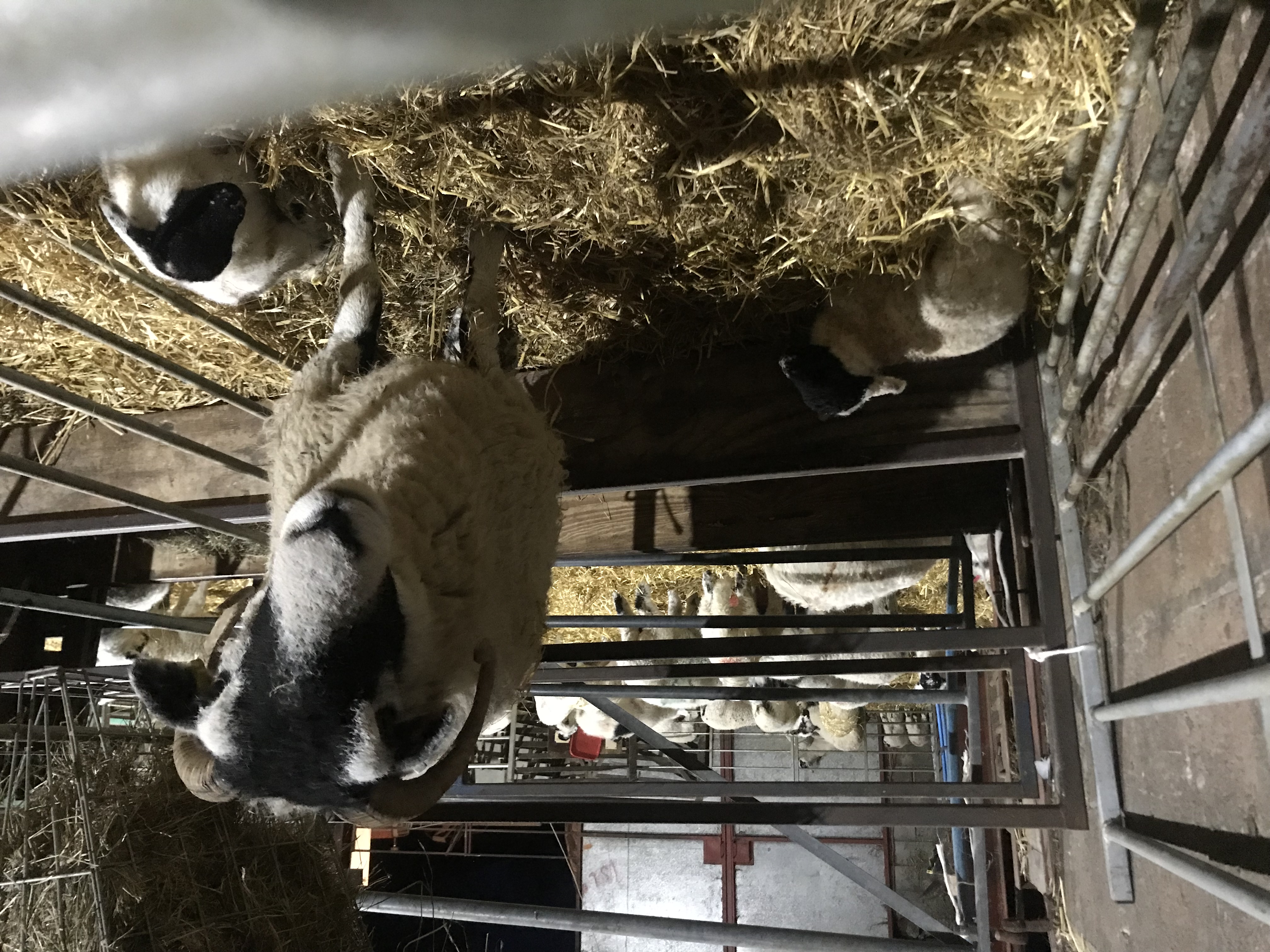
A blog by Samantha Amsden, Finance Resources Co-Ordinator
When Samantha isn’t helping parish treasures with their cashbooks, she works on the family farm with her husband and two young daughters. They breed pedigree Swaledale sheep and Limousin cattle high up in the Yorkshire Dales. As the lambing season draws to a close for them, Samantha reflects on old and new testament offerings...
 Another busy lambing season draws to a close for us in the dales. For the past two months I have spent many hours in a large steel framed agricultural shed in sheep pens, often on my knees, sheltering from the cruel weather that March can often bring.
Another busy lambing season draws to a close for us in the dales. For the past two months I have spent many hours in a large steel framed agricultural shed in sheep pens, often on my knees, sheltering from the cruel weather that March can often bring.
Sheep tend to give their best to their lambs during pregnancy and need to be well cared for after the birth, so the shelter of the shed is very much needed. Much of the time is spent dealing with problems, trying to encourage new-born lambs to take to ewes and ewes to take to their lambs, it’s all about trying to save as much ‘life’ as possible. Through the challenging times, I have often found myself thinking of the shepherds of the Old Testament and wondering whether, Moses, Joseph and David ever have these issues!
This year, the sounds of lambs bleating has been accompanied by chirping and cooing from a pigeon that has also chosen to seek shelter and raise its young on a beam above our pen of orphaned lambs. It reminded me very much of the writings of Luke (2:24) and the offerings of old. In Luke we read that Jesus is brought to the temple as part of the purification rites were the family were required to bring a lamb for an offering. If a lamb was too expensive, the parents could bring a dove or pigeon instead, which is what Mary and Joseph presented as their offering.
I imaging the process of sacrifice and offerings in those days to be a messy business! I for one am very grateful that we live in New Testament times. Jesus became the sacrificial lamb for our sin offering, and as Church we are no longer required to take grain, drink, bulls, lambs, birds etc. before an altar as a sacrifice. But wait a minute - isn’t sacrifice still mentioned when we come before the altar? Ah, yes that big prayer during communion: “We pray that our souls and bodies will be a living sacrifice”. Wow, now that is a big prayer! But what does it mean to be a living sacrifice? Well I trust that God does not require us to die for Him (though sometimes He does), but He is asking for something difficult. He requires us to live for Him, we are to give our entire being, all our heart, love, our talents, energy, and all of our strength to serve Him.
I trust he’s not thinking about the small and simple either; this is not about going to church, donating a bit of money to charity, buying blankets for the poor etc. But it is akin to what Paul wrote about; we’re asked to excel. Excel in the grace of giving, love your neighbour as yourself, be kind to the poor, leave our possessions and follow him.
From Pauls writings (2 Cor. 8:7) we know that the Corinthian church excelled. They had faith, much knowledge and enthusiasm, yet Paul explicitly encouraged them to excel in giving too. I wonder if the church in Corinth had ‘giving’ as a lower priority than other aspects of their discipleship? Is this something that we also might be complacent about from time to time? Is it time that we consider growing in giving alongside our growth in our love, devotion and knowledge of God? And if so, how do we do this? Well, Paul gave great advice on the subject; give according to what we have, be eager in the giving (not reluctant), give the matter some thought, and give proportionately.
As I’m on my knees in the shed, perhaps it’s time I switch my prayerful thoughts from lambs and pigeons to my direct debits.